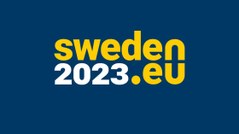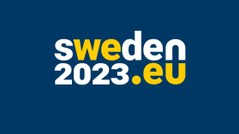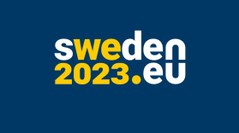- EU immediately on table for new Prime minister
-
Ulf Kristerson (picture above) visited Brussels on 20 October, just two days after he formed his government. He attended a meeting in the Council of EU, and met the president of the Council, Charles Michel. Since Sweden will have the presidency of the Council of EU during the first half of 2023, EU will play a large part of Kristerssons first year as Prime Minister.
- Four priorities for the presidency:
-

Security, competitiveness, green transition, democratic values and the rule of law. These are the priorities of the Swedish Presidency of the Council of the European Union in the first half of 2023, writes the government in its presentation.
Labour market issues do not get a special mention, but it is already decided that the EU directive on platform work will be finalised during the Swedish presidency. Sweden's view is that the EU should not decide who should or should not be considered to be employed.
The issue of labour immigration will also be central during this presidency period. Many EU countries have a great need for this kind of immigration, while Sweden has got a new government based on the Tidö Agreement which says labour immigration rules should be tightened.

Presenting the Swedish presidency to the Swedish parliament on 14 December, Prime MInister Ulf Kristersson highlighted the green transition.
"The fact that the EU institutions agreed to phase out all new fossil fuel cars by 2035 is a great leap in the right direction. Russia's invasion of Ukraine has also made the phasing out of fossil energy even more urgent. Reducing our dependence on fossil fuels began in the 1970s when it was a question of cost. In the 80s and 90s, it also became an environmental issue. Today it has also become a security issue," said Ulf Kristersson.
Yet in order to make enough electric vehicles, access to enough high-quality computer chips is crucial.
"That is why Sweden's presidency will lead the continuing work for a European semiconductor ecosystem. It sounds technical – and it is. But it is also absolutely necessary if we are to manage to electrify our vehicle fleet."
So Sweden will prioritise accelerating the EU's electrification process. One strand of this is working towards a new battery regulation and continuing negotiations on increasing fossil-free energy production.

The Swedish presidency's visual expression includes a logo where different messages are conveyed depending on which letters and numbers are given a yellow colour.
- Presidency costs 1.25bn kronor over three years
-
Much of the preparations for the presidency are handled during Swedish Government Offices staff's day-to-day business. Just like in 2009, there is a meetings secretariat and a communications secretariat.
65 people, recruited both internally and externally, work in the meetings secretariat. Their job is to handle all the practicalities like booking venues, transport, accommodation and other logistics. For the 2023 presidency, security will be more important than it was during the 2009 presidency.
The EU has 24 official languages and around 35 out of the meetings that will be held in Sweden will have interpreters, according to an agreement between the Swedish presidency and the EU Commission's Directorate‑General for Interpretation. The number of languages to be interpreted depend on the nature of the meeting.
The communications secretariat has a staff of 20, who are also recruited both internally and externally. At the Representation in Brussels 200 people, including 20 new recruits, also work with preparations.
The presidency country will carry the cost and has a budget of 1.25 billion Swedish kronor (€114.4m) to cover the years 2021, 2022 and 2023.
 Follow us on Facebook
Follow us on Facebook
